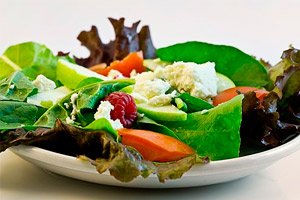
All iLive content is medically reviewed or fact checked to ensure as much factual accuracy as possible.
We have strict sourcing guidelines and only link to reputable media sites, academic research institutions and, whenever possible, medically peer reviewed studies. Note that the numbers in parentheses ([1], [2], etc.) are clickable links to these studies.
If you feel that any of our content is inaccurate, out-of-date, or otherwise questionable, please select it and press Ctrl + Enter.
Nutrition and longevity
Medical expert of the article
Last reviewed: 04.07.2025
 ">
">There is clear evidence of the influence of food and nutrition on many important biological characteristics of the body, in particular on life expectancy, aging, and the time of optimal functioning of its physiological systems.
There is good reason to believe that diet plays an important role in maintaining the mental status of older people.
One of the most general patterns demonstrated by a number of researchers in experiments on mammals of various species is a sharp increase in life expectancy with limited food intake. For example, in rats, life expectancy with limited food intake increases by 50%, and sometimes more, compared to control animals. Of great interest are the observations of V. N. Nikitin (1984), who showed that with dietary restrictions, the hormonal mirror of the body changes, the levels of corticotropin and corticosterone in the blood increase, and the levels of thyrotropin, thyroxine, and insulin decrease noticeably. Interestingly, animals with dietary restrictions retain the ability to mate significantly longer. The mechanism of these phenomena requires further analysis.
It has also been shown that with a normal diet in terms of volume, but with a reduced protein content, a significant increase in life expectancy is also observed. The overall level of not only protein, but also individual amino acids can affect life expectancy. However, this issue has not been sufficiently studied to date. Only individual facts are known that are of great interest. Thus, a two- or three-fold decrease in tryptophan in the diet leads to a noticeable increase in the life expectancy of experimental animals. It is appropriate to recall that tryptophan is a precursor of one of the important physiologically active substances - serotonin.
There is evidence that diets low in saturated fatty acids and cholesterol have reduced cardiovascular mortality in the United States, Canada, and Australia. However, recent studies have suggested that certain foods are erroneously considered hypercholesterolemic and atherogenic.
There are a number of observations demonstrating a significant positive effect of dietary restriction in humans. However, there is currently no evidence that the increase in life expectancy achieved by dietary restrictions does not lead to a decrease in some important functional characteristics of the body. Moreover, observations of animals subjected to dietary restriction demonstrate that there are a number of deviations in their behavior that should be characterized as negative. It should be noted that the multiplicity of food effects makes it difficult, and in many cases impossible, to unambiguously assess a particular diet option. In this regard, elderly people are advised to adhere to their usual diet.
Thus, the problem of the influence of food on life expectancy is very complex and still awaits its solution.


 [
[